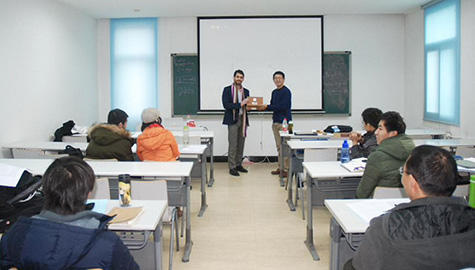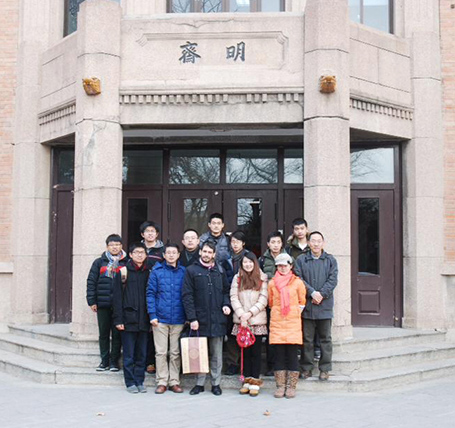

![]()
home
::: about
::: news
::: links
::: giving
::: contact
![]()
events
::: calendar
::: lunchtime
::: annual
lecture series
::: conferences
![]()
people
::: visiting fellows
::: postdoc fellows
::: senior fellows
::: resident fellows
::: associates
![]()
joining
::: visiting fellowships
::: postdoc fellowships
::: senior fellowships
::: resident fellowships
::: associateships
![]()
being here
::: visiting
::: the last donut
::: photo album
|
2013
Edouard Machery, The Epistemology of Cognitive Science and
Neuroscience
The goal of this series of five lectures is to introduce students to the recent debates about the epistemology of cognitive science and cognitive neuroscience: How do we know about cognition? Among the discovery heuristics and confirmation strategies that are used in cognitive science and in cognitive neuroscience, which ones are justified and which ones should be rejected and criticized? What is the proper form of explanation in cognitive science and neuroscience? The topics examined in this series of lectures will intersect with more general issues in the philosophy of science (e.g., are all explanations mechanistic?) and in the philosophy of statistics (e.g., should we accept the likelihood principles? Should we reject classical statistics?).
Lecture 1 Mechanistic Explanation in Cognitive Science
Some philosophers of cognitive science and of neuroscience have recently argued that explanations in cognitive science have to be mechanistic, and that apparently non-mechanistic explanations are merely incomplete mechanistic explanations or drafts of to-be-completed mechanistic explanations. Call this view “the mechanistic stance.” In this lecture, I will first explain what mechanistic explanations are, then present the arguments from the mechanistic stance, before finally assessing it.
Readings
Craver, C. F. (2007). Explaining the brain. Oxford: Oxford University Press. Chapter 4.
Piccinini, G., & Craver, C. (2011). Integrating psychology and neuroscience: Functional analyses as mechanism sketches. Synthese, 183(3), 283-311.
Lecture 2 Dissociations
Dissociations in neuropsychology are one of the most important forms of evidence to be able to identify the processes that underlie human beings’ cognitive capacities. On the other hand, what can be inferred from dissociations remains controversial. In this lecture, we will review the debates about the epistemology of dissociations.
Readings
Davies, M. (2010). Double dissociation: Understanding its role in cognitive neuropsychology. Mind & Language, 25, 500-540.
Plaut, D. C. (1995). Double dissociation without modularity: evidence from connectionist neuropsychology. Journal of Clinical and Experimental Neuropsychology, 17, 291-321.
Shallice, T. (1988). From Neuropsychology to Mental Structure. Cambridge: Cambridge University Press. Chapters 10-11.
Lecture 3 Neuroimagery
In this lecture we will examine two forms of inference used in cognitive neuroscience: forward inference and reverse inference. Debates about the validity of each form of inference are extremely intense. The inferences will be presented before discussion and assessing the criticisms raised against them.
Readings
Henson, R. (2006). Forward inference using functional neuroimaging: dissociations versus associations. Trends in Cognitive Sciences, 10, 64-69.
Machery, E. (2012). Dissociations in Neuropsychology and Cognitive Neuroscience. Philosophy of Science, 79(4), 490-518.
Machery, E. (in press). In Defense of Reverse Inference. The British Journal for the Philosophy of Science.
Poldrack, R. A. (2006). Can cognitive processes be inferred from neuroimaging data? Trends in Cognitive Sciences, 10, 59-63.
Lecture 4 Significance Testing and Cognitive Neuroscience
Recently, it has been argued that neuroimagery fails to provide evidence for functional hypotheses about brain areas or networks because it relies on significance testing (aka, null hypothesis significance testing). If correct, this argument would have drastic consequences and would call it into question much of cognitive neuroscience. In this lecture, we will discuss and assess this argument.
Readings
Klein, C. (2010). Images are not the evidence in neuroimaging. The British Journal for the Philosophy of Science, 61, 265-278.
Machery, E. (in press). Significance testing in neuroimagery. In M. Sprevak (Ed.), New Waves in the Philosophy of Mind.
Lecture 5 Classical Statistics
Classical statistics (in particular, significance testing) is the most influential statistical framework for drawing statistical inferences in psychology as in many other sciences (epidemiology, ecology, etc.). However, it has been extensively criticized by Bayesians. In this lecture, based on the manuscript of my book, we will examine the classic objections to classical statistics.
Readings
Machery, E. (ms). Evidence and Cognition. Chapters 1-3.


